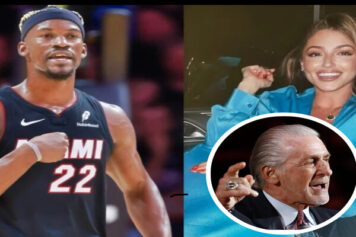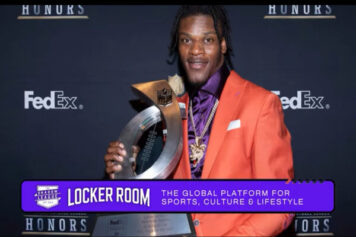50 Cent is at it again with the new Starz series “BMF,” based on the rise and eventual fall of Big Meech Flenory and his crew. Russell Hornsby and Michole Briana White play the parents of Big Meech Flenory and his brother Terry in the show.
Their relationship begins to become strained as Meech ascends to power, but the financial dynamics of the household are bad due to their refusal to accept dirty money.
Does a man or woman stay true to their morals or just take the money? What would you do?
“BMF” tells the true story that is uniquely and tragically American. Though the world would come to know this tale by popular culture, documentaries, music and magazines, the very first to witness the rise of the Flenory brothers were their parents Charles and Lucille Flenory.
In the series, created and written by Randy Huggins and executive produced by 50 Cent and directed by Tasha Smith, we witness the Flenory brothers from the beginning as children growing up in a working-class, two-parent household in southwest Detroit.
Hornsby plays Charles Flenory, a hardworking family man whose morals were formed as a church-going Christian and gospel musician who believes that trial and sacrifice are necessary components of doing the right thing, and that drug dealing is evil.
As the story progresses the young Flenory brothers are growing in confidence and power as runners for Pat, the local drug dealer in power at the time.
However, ambition begins to get the best of the duo, both in the streets and within the Flenory household. This brings Big Meech, played by his real-life son Demetrius “Lil’ Meech” Flenory, to a head-to-head collision with his father, whose old school brand of discipline is sincere but predicated upon the threat of physical violence.
Hornsby recently talked to this writer about the impetus for his character’s behavior while explaining how the elder Flenory’s disciplinary methods were a cultural norm in African-American communities at one time and how his child-rearing methods differ from those he was reared in.
“I was raised this way, my father being from Pittsburgh and my mother being from Boston, the Roxbury area. It was do as I say, not as I do. It was ‘be seen and not heard,’ parents cursed, they laid hands on you — lovingly and otherwise — and they told you how they felt,” Hornsby explained.
“I’m a citizen of the world, and I’ve lived in different communities and different regions of the country, and I’ve seen how a lot of different parents raised their kids and the men that raised you, raised you with that sense of tough love. I bring that into my role because I believe there’s still a love present.”
Though “the old school way” is often predicated upon physicality, some still believe this way of parenting is the only way to raise young Black men. Hornsby went on to explain how, unbeknownst to many at the time, the pressure of leading a household while struggling financially took a severe mental toll on Black fathers, then and now.
“But I think, what we did not take into account at that time, was the frustration with the pain, with the psychological warfare that the families were going through. The parents were going through, but specifically the father,” he continued.
“Not having the means to pay for not just what their kids want but what they need. What does that do to you as a man, you walk in your house and you’re deficient? That kind of pain transfers over to how you treat your children. It transfers over to how you treat your wife and how you treat your loved ones.”
Also, Michole Briana White, who stars as the loving mother to Demetrius and Terry Flenory and acts as a buffer between her sons and their father, explains the differences between, and the cultural expectations for, Black mothers in the late 1980s juxtaposed against how she would respond if she were a mother and wife in similar circumstances today.
Check out more of a very interesting conversation in the video below.
BMF premiered on Starz on Sept. 26.



